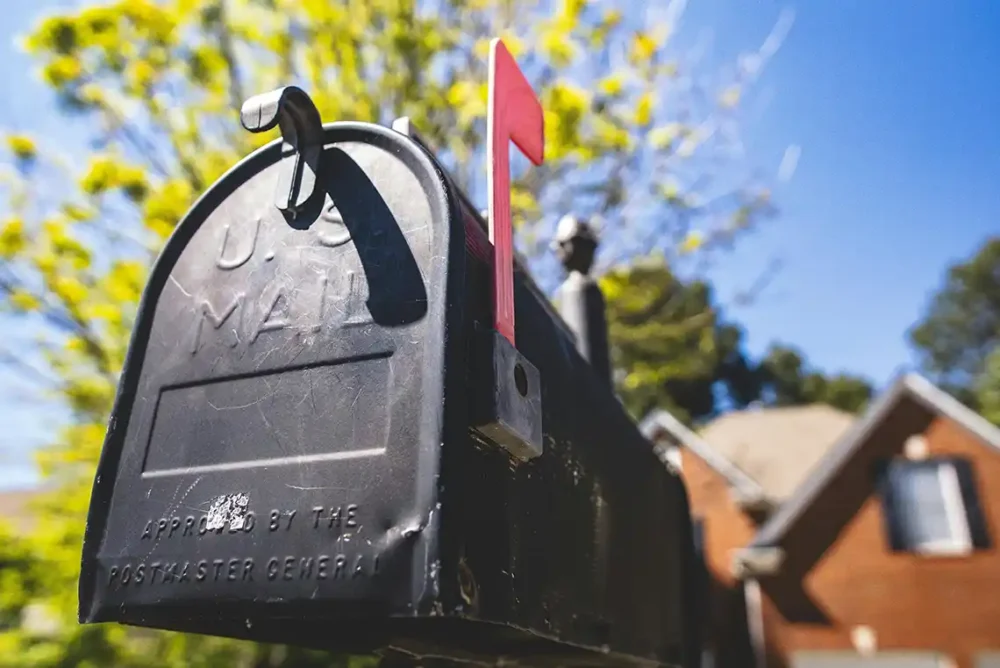
The other day, we received a “domain name renewal” letter via the United States Postal Service, from an entity calling themselves, Domain Name Services.
We have also seen similar letters from others, such as Domain Registry of America. The domain renewal letter we received from Domain Name Services, was clearly a scam. That is because we do not have any domain registrations with this company.
Over the years, we have had a number of clients ask us about the legitimacy of similar domain renewal letters that they have received.
Generally speaking, if you receive a domain renewal letter via your local postal service, it is likely a scam. Of course, always verify the legitimacy of any such letter you receive in the mail, before concluding that it is a scam. You can do this by calling your domain registrar directly.
What is a Domain Registrar?
A domain registrar is an entity that has been accredited by ICANN, to facilitate the domain name reservation and the assignment of IP addresses for the domain names registered.
What is ICANN
Headquartered in Los Angeles, CA, the Internet Corporation for Assigned Names and Numbers or ICANN, is a nonprofit entity, whose two primary functions, are to issue IP address space and to provide DNS (domain name system) management.
Understanding Domain Name Registration and Renewal
When you register a domain name, you do so through a domain registrar for a specified period, typically one year. Many businesses and individuals do not realize that their domain registrations are nearing expiration until it is too late. That is why as a domain expiration date approaches, legitimate domain registrars, typically email renewal reminders to ensure that you have the opportunity to extend your ownership. Most, if not all, legitimate domain registrars do not send out a physical paper letter mailed to you via the United States Postal Service.
Thus, the proliferation of these unsolicited letters you might receive via your local postal carrier, claiming to offer domain renewal services, has led to confusion about whether this communication is legitimate.
How Do these Scam Domain Renewal Letters Work?
Scammers know that most business owners or their employees probably do not recall who their actual domain registrar is. As a result, scammers mail out these seemingly official letters to domain registrants with the goal of tricking unsuspecting business owners or their employees, into making payment. Unfortunately, some business owners or their employees fall for this scam and end up paying these bogus domain renewal fees to the scammers.
The other part of a domain renewal scam, also referred to as “domain slamming”, is to fool domain registrants into transferring their domain names over to the scammers. Once this happens, the scammers may then charge the registrant domain renewal fees that are many times higher than what was paid to the original domain registrar.
Identifying Potential Scams
The following are some warning signs or red flags to watch out for in domain renewal letters.
Unfamiliar Sending Entity
If you receive a letter from a company you have never worked with before, be cautious. Legitimate domain renewal notices will come from your current domain registrar and typically via email.
High Fees
Many scams attempt to charge fees for domain name renewal services that are much higher than what is typically charged by legitimate registrars. Always confirm who your domain registrar is before making any payments.
Pressure Tactics
Scammers often use urgent language, claiming that your domain name will be lost, in an attempt to pressure you into immediate action.
Incomplete or Misleading Information
Be wary of domain renewal letters that lack essential details, such as your domain name’s status or customer identification details. Scammers may also provide misleading information about the need for renewal.
Request for Personal or Financial Information
A legitimate domain registrar will never ask for sensitive information, such as your billing address or credit card information, via unsolicited domain renewal letters. If you receive any letters asking for such information, it is likely a scam.
What You Should Do If You Receive a Domain Renewal Letter in the Mail?
There are a few simple things you can do when you receive a domain renewal letter in the mail. Here are a few of them.
Verify that the Sender is Legitimate
Check to see if the letter came from your current domain registrar. When in doubt, visit your domain registrar’s official website to confirm upcoming expiration dates and renewal procedures.
Contact Your Domain Registrar
If a letter raises suspicion, reach out directly to your domain registrar using contact information from their official website, not from the unsolicited domain renewal letter itself.
Do Not Respond or Provide Information
Avoid responding to any unsolicited letters or providing any personal information, unless you can verify its legitimacy.
Report Suspected Scams
If you identify a suspicious domain renewal letter, consider reporting it to consumer protection agencies or the Better Business Bureau. This can help to protect the community at large, from such scams.
While renewal letters for domain names are not inherently a scam, the rise of fraudulent domain renewal solicitations can certainly confuse domain registrants.


